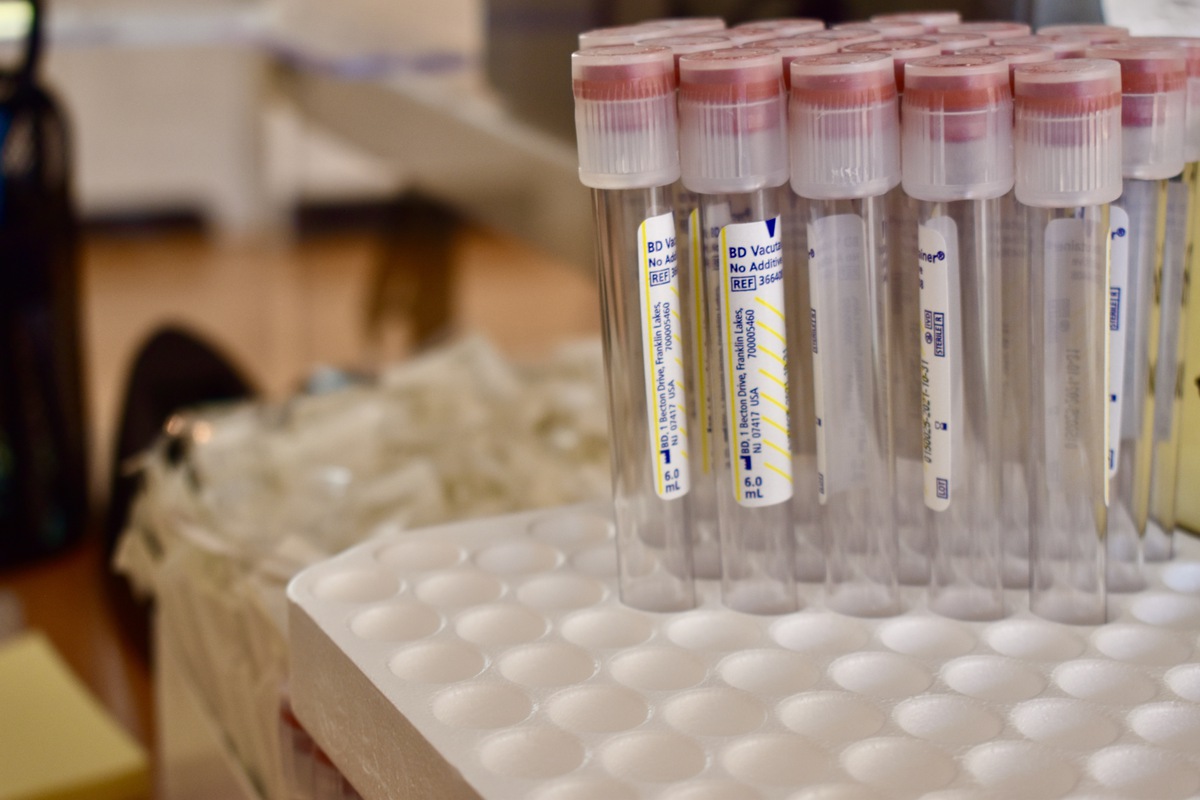Yale extends weekly testing policy through October
The University has sent emails to students concerning the extension of weekly testing mandates and flu season preparations.

Regina Sung, Photo Editor
The University has extended its COVID-19 testing requirements for all students through the month of October.
Melanie Boyd, dean of student affairs and associate dean of Yale College, announced in a Sept. 15 email that mandatory testing for all students will continue through the month of October. The University had originally planned to maintain its testing requirement — weekly for fully vaccinated students and twice a week for partially vaccinated or exempt students — through the month of September. The testing requirement was extended as a precaution, following weeks of low rates of infection within the Yale community, according to the emails.
“We expected that there would be some sporadic cases on campus,” Boyd wrote in an email to the News. “The goal is to avoid outbreaks and the community has done that so far.”
According to the University’s COVID-19 dashboard, approximately 99.2 percent of Yale undergraduates are vaccinated. The University as a whole is currently at a yellow alert level, which means a “low to moderate” level of COVID-19-related risk. On the day of Boyd’s email, there were no positive COVID-19 tests, according to the dashboard. There were eight positive tests for students — two undergraduate and six graduate and professional school students — from Sept. 15 to Sept. 21, the most recent available weekly data.
In her email, Boyd attributed the University’s ability to continue holding in-person classes and programming to students’ cooperation with the COVID-19 guidelines. The administration decided to extend the testing mandate because of its effectiveness at curbing outbreaks.
Spangler said that the University made the decision to extend the weekly testing requirement for vaccinated undergraduate students based on advice from public health experts.
“These experts have found that regular monitoring for what are often asymptomatic or mildly symptomatic infections among vaccinated individuals is an important measure to prevent further transmission of COVID-19 in our campus community,” Spangler wrote to the News.
As such, the extension of the testing policy is not indicative of a higher incidence level of positive cases, but rather a precaution which will allow the University to lessen other restrictions, Spangler said.
Both Boyd and Spangler also commented on the impact that the flu season may have on Yale’s COVID-19 testing guidelines. According to Boyd, the current testing mandate is reviewed regularly and is subject to change.
“Given overlapping symptoms, flu season may lead to an increase in symptomatic testing and we are planning for that,” Boyd wrote. “Students … should continue to monitor for mild symptoms — even mild symptoms are cause to self-isolate and schedule a symptomatic test, which is available every afternoon at Rosenfeld [Hall]. If symptoms persist after a negative test, students should contact Student Medicine.”
One student, Max Bamberger ’25, said that extending the testing mandate helps him feel safer interacting with their peers.
“I feel much safer hanging out in groups and meeting new people with the knowledge that everyone I’m interacting with (as well as myself) has tested negative recently,” Bamberger wrote.
In her Sept. 17 email, Spangler also included information about flu season at Yale. The University is offering flu shots to all members of the community through the “Find Your Flu Shot Tool.” She wrote that all students are required to receive their flu shots as a part of the Community Compact that they signed over the summer before coming back to campus.
The extension of the testing requirement comes amid shifting guidelines on events and gatherings — while the broader capacity limit on campus gatherings remains at 20 people for indoor gatherings and 50 people for outdoor gatherings, the University relaxed restrictions for student groups on Sept. 22, lifting capacity requirements altogether in some situations.
Students can schedule their COVID-19 tests through MyChart.







